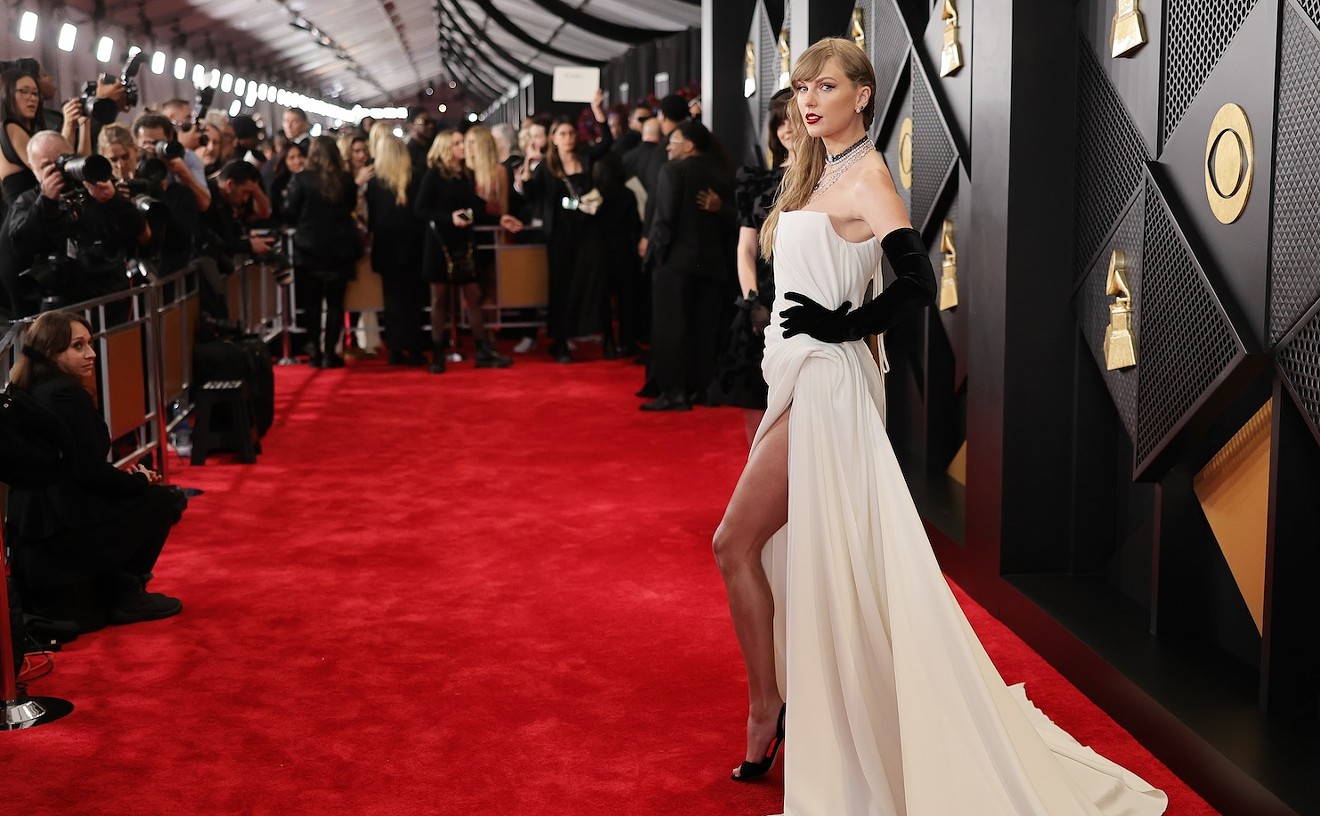Marshall Mathers deserves your respect.
He was dealt a real shitty deck in life. His father left him as a baby. His mother mentally abused him. He grew up poor as shit in the bad really bad part of Detroit. And still, he overcame it all to stake a claim for white people in hip-hop, reversing the decade of shame brought on by Vanilla Ice. Artists like Macklemore and Mac Miller wouldn't have a career if not for the work that Eminem did in the '90s.
He went on to overcome addiction and terrible personal problems, and now he's back with a new record that reflects his journey and struggle, but everybody just wants to mislabel him a "sellout." To paraphrase a probably coked-out gay dude on YouTube, y'all need to "leave Eminem alone." Here's why.
See also: Top Ten Molly References in Rap Music, From Rick Ross to Eminem
The most recent controversy stems from Em's latest song, "Berzerk," the lead single off his forthcoming album, The Marshall Mathers LP 2. Honestly speaking, the title of the record is the true seed of discontent. Fans immediately doubt that the follow-up to a true classic can live up to expectations. But that's the wrong way to approach it.
Instead, we must realize the title implies a return to the artist's roots, and in fact, from the very first "Berzerk" lyric, Mathers lays it out: "Now this shit's about to kick off, this party looks wack/Let's take it back to straight hip-hop and start it from scratch." Just like in the O.G. days of Brooklyn's budding scene, he bases the hook on a sample from an '80s song -- in this case, Billy Squire's "The Stroke."
He continues the allusion to rap's early period with the song's heavy Beastie Boys influence, the most notable white rappers to precede his own rise to fame. The song samples the Beasties and pays visual homage to their "So What Cha Want" vid.
Problematically, people take issue with the use of the guitar sample and the vocal style. Uninformed individuals see it as a "sellout" move, considering it too catchy or poppy. But c'mon, he's not rapping over Avicii like Flo Rida or Pitbull. He's being true to his roots, as the album title and lyrical content implies. Lest we forget, selling out means compromising your artistic values in return for inflated record sales. It doesn't mean switching up your style because it's the natural next stage of your artistic evolution.
Another point of contention is the cameo from Kid Rock, someone most people don't take seriously as an artist. But let's think about it critically.
Kid Rock and Eminem came up on the same scene in the same city at the same time. They blew up during the same era, and though they represented different ends of the entertainment spectrum, they never beefed, instead choosing to support each other silently as Detroit natives. They've both done a lot of growing up, and Detroit just went bankrupt. What's wrong with banding together for the sake of brotherly love? Nothing.
So, if we accept the sample and premise of the track as legitimate and honor the many references and cameos as coming from an honest place, the only thing left to examine is Em's skill. And formally speaking, Mathers is as gifted now as he ever was in his heyday. His flow is sick, his lyrics are on point, and his message is clear.
True, the content is not the same as on the original Marshall Mathers LP. No, he's not rapping about kidnapping his ex-wife, torturing women and haters with chainsaws, or doing a mountain of downers and psychedelics. But why should he? Marshall in his 40s is not Marshall in his 20s. If he rapped that chaotic, angry shit now, it would be dishonest. Expecting him to do so is misguided and quite honestly a slap in the face to his struggle to overcome addiction and the pitfalls of fame, a struggle that has been the ruin and death of many lesser men.
Instead of calling Eminem a "sellout," why don't you just say what you really feel? You just don't like the song; it's not what you wanted to hear. You miss the old Eminem, but it's like Jay Z said: "Niggas want my old shit, buy my old albums."
Eminem isn't catering to the standard; he's catering to his own needs and desires, and if you're not interested in following him on that path, just don't. But if you take a close look at "Berzerk," it's unfair to dismiss this new track (not to mention The Marshall Mathers LP 2) as unfaithful to his catalog or below the standard he's previously set for himself.
And don't forget, Dre made his entire career possible. Who gives a shit if he backs the homie and sells some headphones?
Aftermath for life.
Follow Crossfade on Facebook and Twitter @Crossfade_SFL.
Follow Kat Bein on Twitter @KatSaysKill.











